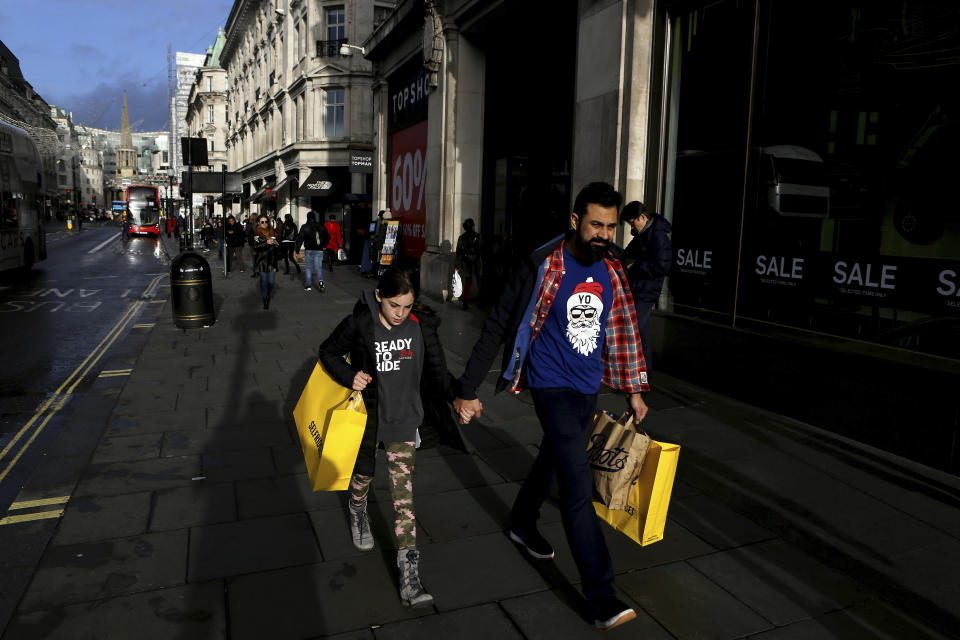UK retail sales bounced back in January in election boost

Retail sales were stronger than expected in January, as consumers headed to shops in the wake of new-found economic certainty, pushing the sector into growth for the first time in months.
Compared with December, sales volumes climbed by 0.9% in the first month of the year, better than the 0.7% analysts had forecast, according to official data from the Office for National Statistics (ONS).
The strong growth, the best since March 2019, means the the retail sector has snapped the longest stretch of weakness since sectoral records began in the 1970s. The sector had experienced no growth in the final five months of 2019.
“January’s official retail sales figures confirm that the decisive general election has released the handbrake of political uncertainty on consumers’ spending,” said Samuel Tombs, the chief UK economist at Pantheon Macroeconomics.
Read more: Air France-KLM and Qantas warn of major coronavirus profit hits
The increase was mainly driven by “moderate” growth in both food stores, where sales volumes climbed by 1.7%, and non-food stores, where they climbed by 1.3%.
Consumers spent 1.2% more in January than they did in December, and 2.1% more than the same month in 2019.
The growth was strongest at textile, clothing, and footwear stores, which saw a 3.9% increase in sales volumes, the ONS said. This partially offset a 5.7% fall in fuel sales.
“The headline number has been depressed by a huge 5.7% month-to-month drop in fuel store sales — the biggest since March 2015 — driven by a rise in fuel prices and bad weather,” said Tombs.
Excluding fuel sales, retail sales climbed by 1.6% in January, the fastest pace since May 2018.
The growth will be a welcome boost for retailers, who have been dented by severe Brexit-related economic uncertainty.
The British Retail Consortium (BRC) said last month that, overall, 2019 was the worst year on record for the retail sector.
Read more: Shareholder rebellions over executive pay surged at UK companies in 2019
The BRC blamed Brexit and political uncertainty for a huge drop-off in consumer confidence.
Tens of thousands of employees in the retail sector lost their jobs in 2019, while behemoths like Sir Philip Green’s Arcadia Group underwent restructuring and closed stores across the country.
Several other economic indicators have pointed to signs that there has been a clear, if modest, rebound for the UK economy in the wake of December’s emphatic election result.
The new retail figures came after the ONS said on Wednesday that the UK inflation rate climbed to a six-month high of 1.8% in January, largely driven by energy, clothing, and airfare prices.
The year-on-year jump in prices and the stronger-than-expected January retail data will ease pressure on the Bank of England, which has held interest rates steady in the face of stubbornly low inflation levels.


